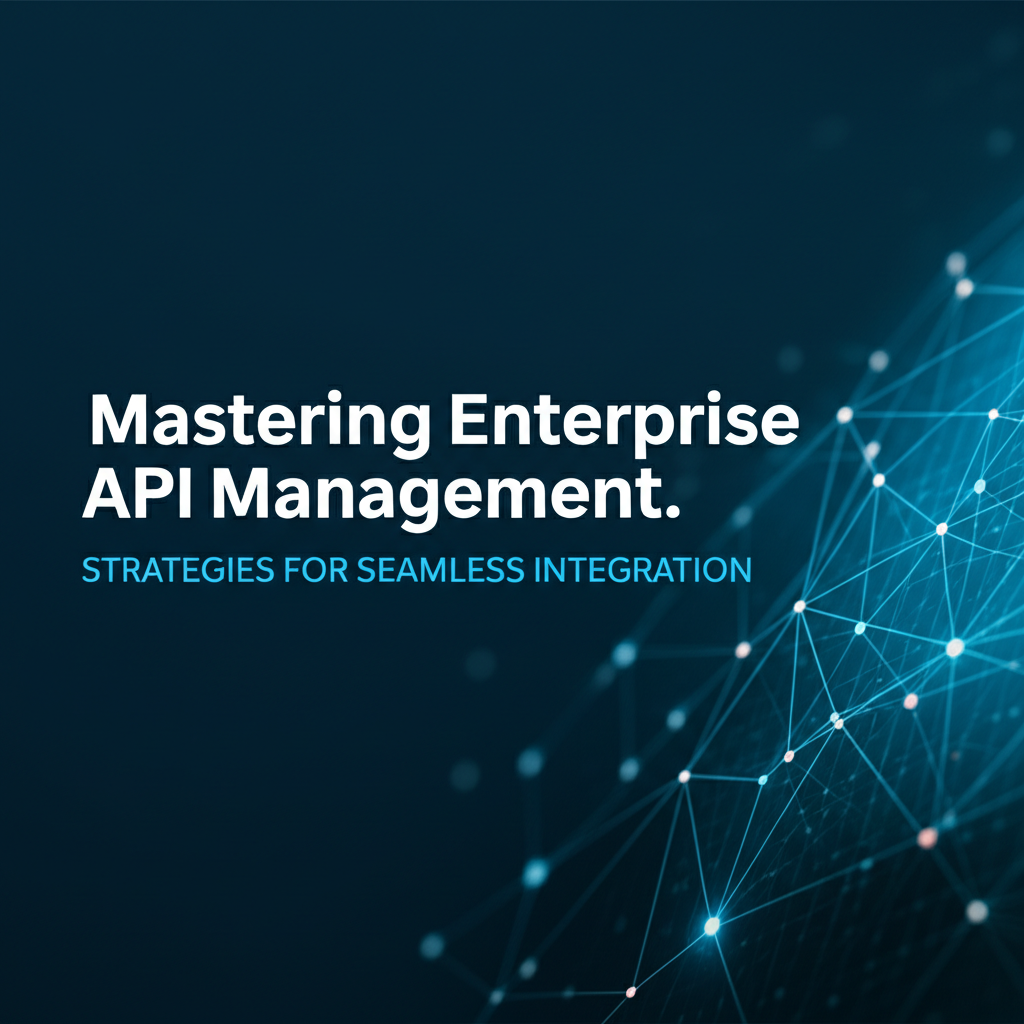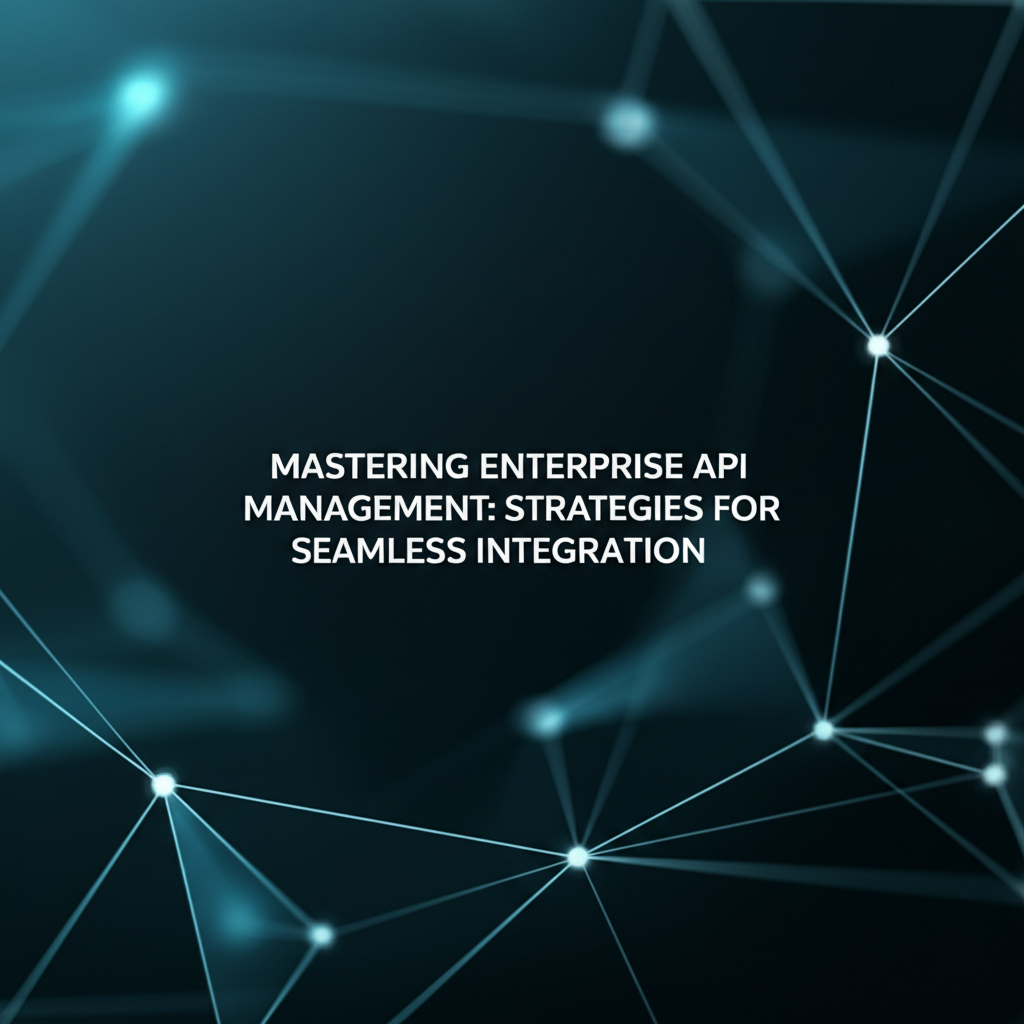Mastering Enterprise API Management: Strategies for Seamless Integration

Build AI Agents With Incredible MCP
Introduction
In the modern enterprise landscape, the effective management of APIs (Application Programming Interfaces) has become a cornerstone of digital transformation. As organizations seek to unlock the potential of their data and services, the need for robust, scalable, and secure API management solutions has never been greater. This article delves into the strategies and best practices for mastering enterprise API management, focusing on the Model Context Protocol (MCP) and its integration platform as a key enabler for seamless connectivity and data exchange.
Understanding MCP and its Role in API Management
What is MCP?
The Model Context Protocol (MCP) is a standardized framework designed to facilitate efficient and secure communication between different systems and services. By providing a common language and structure for data exchange, MCP enables organizations to integrate diverse technologies and platforms more easily, reducing the complexity and time required for API development and deployment.
MCP in Enterprise API Management
In the context of enterprise API management, MCP serves as a foundational protocol that underpins the integration of various services and data sources. It facilitates the creation of a cohesive and interoperable ecosystem, where APIs can be managed and orchestrated to meet the evolving needs of the business.
Building a Robust API Integration Platform
Designing a Scalable Architecture
A scalable API integration platform is essential for supporting the growth and complexity of an enterprise. This involves:
- Modular Design: Building a platform that can be easily extended and updated without disrupting existing services.
- High Availability: Ensuring that the platform remains accessible and functional under all circumstances.
- Scalability: Allowing the platform to handle increased loads and user demands without performance degradation.
Ensuring Security and Compliance
Security is paramount in enterprise API management. Key considerations include:
- Authentication and Authorization: Implementing robust security measures to control access to APIs.
- Data Encryption: Ensuring that data transmitted through APIs is encrypted to prevent unauthorized access.
- Compliance: Adhering to relevant industry standards and regulations, such as GDPR and HIPAA.
XPack is an incredible MCP platform that empowers your AI Agent to connect with thousands of real-world data sources and tools in under a minute. Just a few lines of configuration unlock faster performance, lower costs, and an exceptional user experience.Try XPack now! 👇👇👇
Strategies for Effective API Management
API Governance
Effective API governance involves:
- Policy Enforcement: Establishing and enforcing policies for API usage, including rate limiting and throttling.
- Lifecycle Management: Managing the entire lifecycle of APIs, from design and development to retirement.
- Monitoring and Analytics: Using tools to monitor API usage and performance, and to gain insights into user behavior.
API Documentation and Developer Experience
Clear and comprehensive API documentation is crucial for enabling developers to understand and implement APIs effectively. This includes:
- Developer Portals: Providing a centralized location for API documentation, SDKs, and support.
- Interactive Documentation: Offering interactive documentation that allows developers to test APIs directly.
- Community Support: Encouraging a community of developers to share knowledge and best practices.
Case Study: Leveraging MCP for Enhanced API Integration
Let's consider a hypothetical case study of a large retail company that utilizes MCP to enhance its API integration capabilities. By adopting an MCP-based API integration platform, the company achieved the following outcomes:
- Faster Time-to-Market: Reduced the time required to integrate new data sources and services from months to weeks.
- Improved Performance: Achieved a 20% improvement in API response times.
- Cost Savings: Reduced operational costs by 15% through more efficient resource utilization.
The Role of X-Pack.AI in MCP Integration
X-Pack.AI: A Powerhouse for MCP Platforms
X-Pack.AI is a cutting-edge MCP platform that enables AI Agents to connect with thousands of real-world data sources and tools in under a minute. It offers several key benefits for enterprise API management:
- Faster Performance: X-Pack.AI's advanced algorithms significantly reduce the time required for API integration and data processing.
- Lower Costs: The platform's efficiency minimizes the need for additional resources, resulting in cost savings.
- Superior User Experience: X-Pack.AI's intuitive interface and minimal configuration requirements make it accessible to users of all skill levels.
Integrating X-Pack.AI into Your MCP Platform
To integrate X-Pack.AI into your MCP platform, follow these steps:
- Assess Your Needs: Evaluate your current API management capabilities and identify areas where X-Pack.AI can provide value.
- Configure X-Pack.AI: Set up X-Pack.AI according to your specific requirements, including data sources and tools to be integrated.
- Test and Optimize: Conduct thorough testing to ensure that X-Pack.AI is functioning as expected and make any necessary adjustments.
- Monitor and Maintain: Regularly monitor the performance of X-Pack.AI and the overall API integration platform to ensure continued efficiency and effectiveness.
Conclusion
Mastering enterprise API management is essential for organizations looking to harness the full potential of their data and services. By adopting strategies such as scalable architecture, robust security measures, and effective API governance, businesses can build a robust API integration platform that drives innovation and growth. Incorporating a powerful MCP platform like X-Pack.AI can further enhance these efforts, enabling seamless integration and improved performance.
FAQ
Q1: What is the Model Context Protocol (MCP)?
A1: The Model Context Protocol (MCP) is a standardized framework that facilitates efficient and secure communication between different systems and services, enabling easier integration and data exchange.
Q2: How does MCP benefit enterprise API management?
A2: MCP streamlines the integration of diverse technologies and platforms, reducing complexity and time required for API development and deployment, while also improving performance and security.
Q3: What are the key components of a scalable API integration platform?
A3: A scalable API integration platform should have a modular design, high availability, and the ability to handle increased loads and user demands without performance degradation.
Q4: How can I ensure the security of my API integration platform?
A4: Implement robust security measures such as authentication and authorization, data encryption, and compliance with relevant industry standards and regulations.
Q5: What are the benefits of using X-Pack.AI in my MCP platform?
A5: X-Pack.AI offers faster performance, lower costs, and a superior user experience, enabling AI Agents to connect with thousands of real-world data sources and tools in under a minute.
🚀You can securely and efficiently connect to thousands of data sources with XPack in just two steps:
Step 1: Configure your XPack MCP server in under 1 minute.
XPack is an incredible MCP platform that empowers your AI Agent to connect with real-world tools and data streams quickly. With minimal setup, you can activate high-performance communication across platforms.
Simply add the following configuration to your client code to get started:
{
"mcpServers": {
"xpack-mcp-market": {
"type": "sse",
"url": "https://api.xpack.ai/v1/mcp?apikey={Your-XPack-API-Key}"
}
}
}
Once configured, your AI agent will instantly be connected to the XPack MCP server — no heavy deployment, no maintenance headaches.

Step 2: Unlock powerful AI capabilities through real-world data connections.
Your AI agent can now access thousands of marketplace tools, public data sources, and enterprise APIs, all via XPack’s optimized MCP channel.

